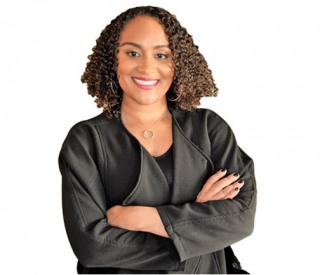
Over the past 20 years, culturally responsive education (CRE) has gained attention from researchers and practitioners in schools across the United States. Defined as a theory and model centered around the cultural and linguistic diversity of students, CRE was initially promoted to advance the achievement of students of color who have been historically underserved. Specifically, it teaches (1) academic success, (2) cultural competence, and (3) sociopolitical consciousness (Ladson-Billings, 2014). However, state standards, curricula, instruction, assessments, and teacher evaluations typically address only academic success. Yet, time and time again, educators find that academic skills are not enough to navigate the inequities in society and schools.
The learning within CRE is student-centered and the cultural identities of students are used as resources for teaching, learning, and leadership. While a sound approach for student achievement, teachers often struggle to fully understand its origins and how to apply this model in the classroom. For example, teachers wrestle with how equity and CRE look in lesson plans. Similarly, school principals and teacher leaders also struggle with culturally responsive leadership and supporting teachers to teach in equitable and CRE ways.
Dr. Gholnecsar (Gholdy) Muhammad’s research examines the historical roots of CRE and provides a clear, practical, and equitable model that extends original CRE research into a new model of culturally and historically responsive education (CHRE). In this session, she will introduce educators to CHRE and discuss a four-layered equity model for teaching and learning with goals that include (1) identity, (2) skills, (3) intellectualism, and (4) criticality. Exemplar CHRE lesson and unit plans for adult education will be shown and discussed.
- All adult education practitioners
- Non-Massachusetts teachers will be put on a wait list.
This professional development activity/course is designed for:
In this foundational session, the facilitator will clearly define culture, equity, anti-racism, and CHRE. Together, culture will be explored and revisited in deep, multifaceted ways. We will consider our own cultural identities and approaches to learning the cultures/identities of students. By the end of this session, the educators will understand the concept of culture more deeply and will be charged to engage in self-identity work. The facilitator will also introduce educators to the CHRE model of culturally and historically responsive education and the power of education among communities of color in the United States. The session will end with practical considerations for writing equitable lesson and unit plans and engaging others.
- Understand culture, equity, anti-racism, and CHRE
- Explain why adult students and teachers need CHRE to advance equity and excellence
- Begin using CHRE to improve and advance pedagogical practices for adult education
- Articulate the difference between “good teaching” and CHRE
Upon completion of this professional development activity/course, you will be able to:
N/A
United States


